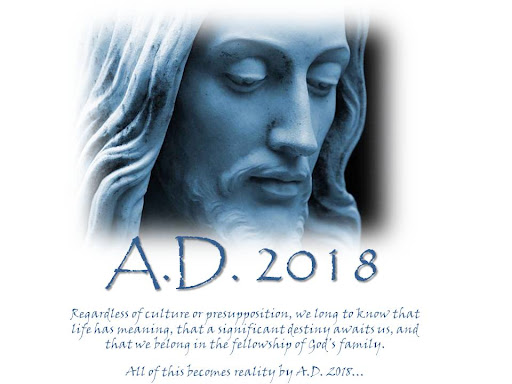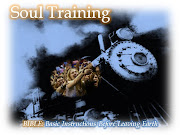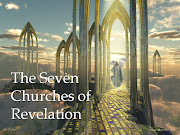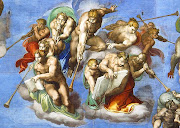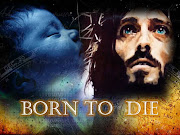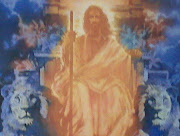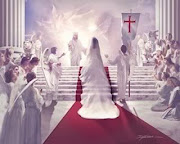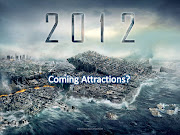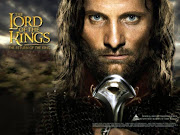Monday, June 21, 2010
Saturday, May 1, 2010
Regeneration
Editor's Column
This month we celebrate the unique work of the Holy Spirit in the Church age, which began at Pentecost. The Holy Spirit is the supernatural and sovereign agent in regeneration, baptizing all believers into the body of Christ (1 Cor. 12:13). The Holy Spirit also indwells, sanctifies, instructs, empowers us for service, and seals us unto the day of redemption (Rom. 8:9-11; 2 Cor. 3:6; Eph. 1:13).
Prefigured in the literal Old Testament Feast of Weeks, the first-fruits of Pentecost picture regenerate believers, filled with the Holy Spirit. Essentially, the Lord has moved from a temple for His people, to favoring a people for His temple. And like skipping a flat rock across a pond, the touch-points of biblical feast days are all at once literal, figurative, and prophetic, especially when it comes to Pentecost.
That said, before unpacking these individual facets, our features this month include a video montage on the wondrous attributes of Christ, entitled “That’s My King.” Then, leveraging the literal giving of the Law, we provide context on the original Feast of Weeks (Pentecost). We follow this with figurative insight on the regenerative aspect of Pentecost, where the Spirit of Christ rained down on the early Church in the upper room. We then amplify our need of regeneration with an article entitled, “Knowing God” and a rap-video that affirms this truth. Last, we close with the third dimension of Pentecost by examining the prophetic, with the “2010 Rapture Codes” and multi-media content that speaks to the tragic results of being left behind.
In all these things, we stand in awe of the Almighty, as He brings the redemptive plan of salvation to fruition. Through the power of the Holy Spirit and the privilege of our ministry though, we also pray our readers will consider the axiom, “born once, die twice; born twice, live forever,” which speaks of the choice offered to us all, through the power of regeneration at Pentecost.
Roy J. Tanner

From a literal perspective
The Feast of Weeks (Exodus 34:22; Numbers 28:26-31; Leviticus 23:15-21) is the second of the three major Jewish festivals (the other two are Passover and the Feast of Tabernacles). All adult males were required to travel to the sanctuary to take part. This festival was observed 7 weeks from the second day of Passover, on which was the offering of barley sheaf, hence the name of the festival. It is also known as Pentecost (Pentecost is Greek for 50 days), because it falls on the 50th day (7 weeks is 49 days so the day after is the 50th).
The Feast of Weeks was observed after the Israel people settled in the Promised Land. On this day, no work was permitted. The people would gather at the Tabernacle to thank God for the harvest. It marked the time when the first fruits of the wheat harvest were gathered and offered to the Lord, and was also known as the Feast of the Ingathering. It also commemorated the giving of the Law at Mount Sinai.
Offerings
This was one of the seven high days, which were to be treated like Sabbaths. Therefore two additional lambs were to be offered as burnt offering after the morning service. In addition, the offerings on this day also consisted of:
• Wave offering: Two loaves of leavened bread made from fine flour from the wheat
• Burnt offering: 7-male lambs, 2-bulls, and 1-ram, with a grain and drink offerings
• Sin offering: a male goat
• Peace offering: 2 male lambs
Figuratively: The First Pentecost after Christ's Resurrection
Acts 2 also recorded the descent of the Holy Spirit on the first Pentecost after the resurrection of Christ. The custom required all the males to travel to Jerusalem and gather at the temple. While gathering in the temple, the disciples were filled with the Holy Spirit. Then Peter stood up to address the crowd. On that day, 3,000 accepted his message and became believers. That was probably the largest group of people accepting Christ in one meeting in the history of mankind.
Pentecost was the only festival that leavened bread was used. It was very unusual because leaven represents something that is false, impure, sinful. Here it signifies the offering of sinners, that is, bringing them to Christ. The 3,000 new believers were the first fruits of the harvest and were presented to God on the first Pentecost after Christ was resurrected.
Regeneration: Pentecost Figuratively...
Knowing God
What If I Miss The Rapture?
Missed the rapture, what's next?
What We Believe...
Regarding End Times
The Rapture of the Church
We affirm the personal, bodily return of our Lord Jesus Christ before the seven-year tribulation (1 Thess. 4:16; Titus 2:13) to translate His church from this earth (John 14:1-3; 1 Cor. 15:51-53; 1 Thess. 4:15-5:11) and, between this event and His glorious return with His saints, to reward believers according to their works (1 Cor. 3:11-15; 2 Cor. 5:10).
The Tribulation Period
We affirm that immediately following the removal of the church from the earth (John 14:1-3; 1 Thess. 4:13-18) the righteous judgments of God will be poured out upon an unbelieving world (Jer. 30:7; Dan. 9:27; 12:1; 2 Thess. 2:7-12; Rev. 16), and that these judgments will be climaxed by the return of Christ in glory to the earth (Matt. 24:27-31; 25:31-46; 2 Thess. 2:7-12). At that time the Old Testament and tribulation saints will be raised and the living will be judged (Dan. 12:2,3; Rev. 20:4-6). This period includes the seventieth week of Daniel's prophecy (Dan. 9:24-27; Matt. 24:15-31; 25:31-46).
The Second Coming and the Millennial Reign
1. After the tribulation period, Christ will come to earth to occupy the throne of David (Matt. 25:31; Luke 1:32,33; Acts 1:10,11; 2:29,30) and establish His messianic kingdom for a thousand years on the earth (Rev. 20:1-7). During this time the resurrected saints will reign with Him over Israel and all the nations of the earth (Ezek. 37:21-28; Dan. 7:17-22; Rev. 19:11-16). This reign will be preceded by the overthrow of the Antichrist and the False Prophet, and by the removal of Satan from the world (Dan. 7:17-27; Rev. 20:1-6).
2. The kingdom itself will be the fulfillment of God's promise to Israel (Is. 65:17-25; Ezek. 37:21-28; Zech. 8:1-17) to restore them to the land which they forfeited through their disobedience (Deut. 28:15-68). The result of their disobedience was that Israel was temporarily set aside (Matt. 21:43; Rom. 11: 1-26) but will again be awakened through repentance to enter into the land of blessing (Jer. 31:31-34; Ezek. 36:22-32; Rom. 11:25-29).
3. This time of our Lord's reign will be characterized by harmony, justice, peace, righteousness, and long life (Is. 11; 65:17-25; Ezek. 36:33-38), and will be brought to an end with the release of Satan (Rev. 20:7).
The Judgment of the Lost
We affirm that following the release of Satan after the thousand year reign of Christ (Rev. 20:7), Satan will deceive the nations of the earth andgather them to battle against the saints and the beloved city, at which time Satan and his army will be devoured by fire from heaven (Rev. 20:9).
1. Following this, Satan will be thrown into the lake of fire and brimstone (Matt. 25:41; Rev. 20:10) whereupon Christ, who is the judge of all men (John 5:22), will resurrect and judge the great and small at the Great White Throne judgment.
2. This resurrection of the unsaved dead to judgment will be a physical resurrection, whereupon receiving their judgment (John 5:28,29), they will be committed to an eternal conscious punishment in the lake of fire (Matt. 25:41; Rev. 20:11-15).
Eternity
We affirm that after the closing of the Millennium, the temporary release of Satan, and the judgment of unbelievers (2 Thess. 1:9; Rev. 20:7-15), the saved will enter the eternal state of glory with God, after which the elements of this earth are to be dissolved (2 Pet. 3:10) and replaced with a new earth wherein only righteousness dwells (Eph. 5:5; Rev. 20:15,21,22). Following this, the heavenly city will come down out of heaven (Rev. 21:2) and will be the dwelling place of the saints, where they will enjoy forever fellowship with God and one another (John 17:3; Rev. 21,22). Our Lord Jesus Christ, having fulfilled His redemptive mission, will then deliver up the kingdom to God the Father (1 Cor. 15:23-28) that in all spheres the triune God may reign forever and ever (1 Cor. 15:28).
Subscribe to:
Posts (Atom)
